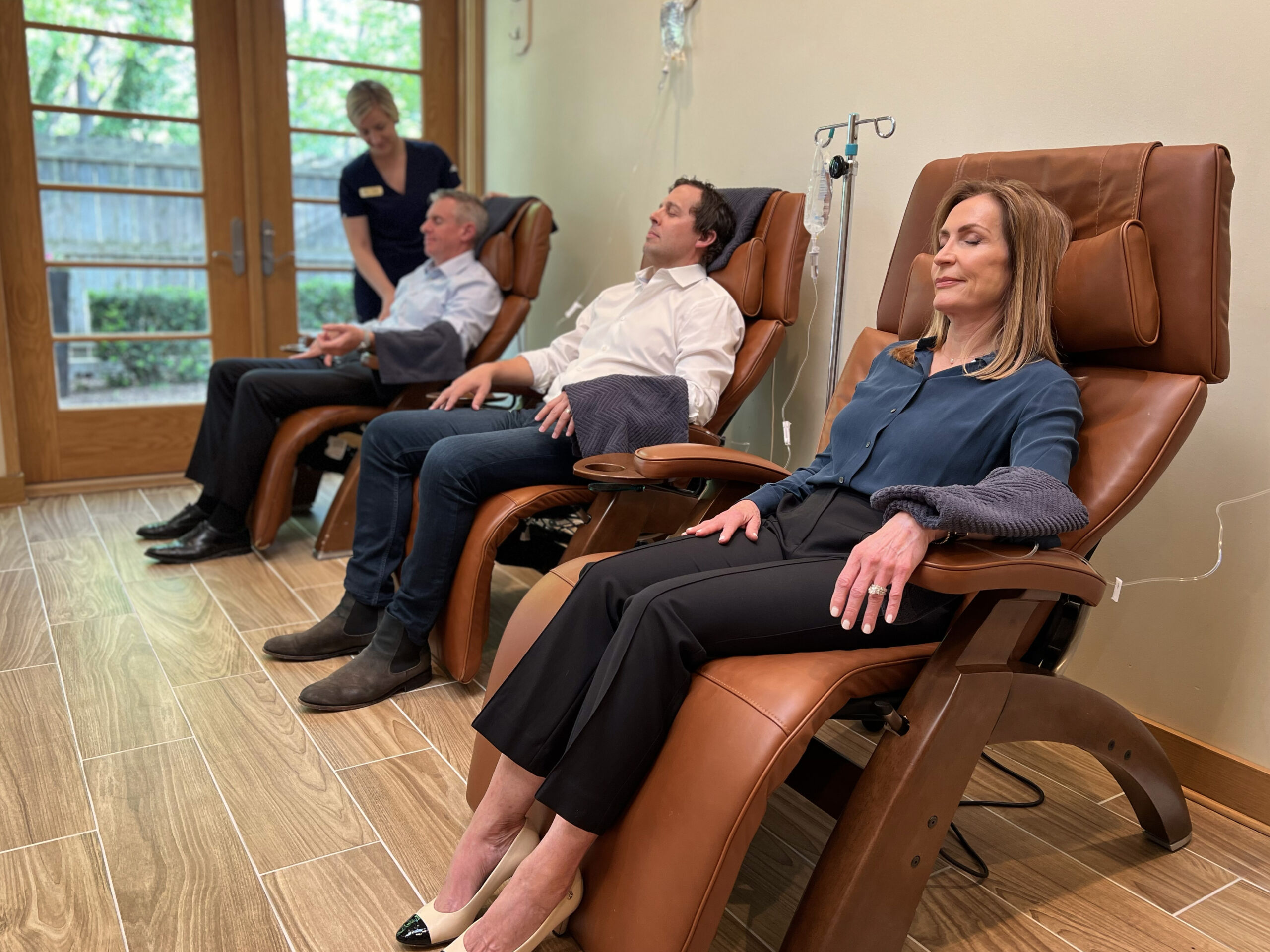Did you know that over half of the adult population has been diagnosed with at least one chronic health condition? Heart disease, diabetes, hypothyroidism, and arthritis are all common forms of chronic illness that you may be familiar with, or even have experienced yourself.
Chronic disease often has an upstream root cause that exacerbates the issue. This can be due to the declining function of one of your body systems, environmental conditions, lifestyle habits, diet, genetics, or psychosocial influences—and many times, it is a combination of those factors.
When it comes to treating chronic conditions, functional medicine digs into how and why an illness occurs and treats the root cause of disease for each individual by creating sustainable lifestyle change in conjunction with advanced treatment.
According to Dr. Karrie Hohn, physician at PALM Health, it’s important to take a functional medicine approach to your healthcare because it is a more comprehensive, lifestyle-based way to get to the bottom of your symptoms. In doing so, functional medicine aims not only to eliminate the problem, but also to mitigate future complications and improve the overall well-being of your mind, body, and spirit.
“We use a variety of factors—your medical history, health goals, body composition analysis, physical exam, and more—to tailor an individualized health plan to you,” says Dr. Hohn. “That way, we can get ahead of chronic illness and stop future medical issues before they take root.”
The 5 Ps of Functional Medicine
At PALM Health, the functional medicine model is built upon five key elements that set it apart from conventional treatment. These “5 Ps” are what make the functional approach so successful in helping individuals transform their health.
1. Personalized and Unique to You
At its heart, functional medicine is about each unique individual. Your provider will work closely with you to learn about your diet, exercise routine, family and social life, work habits, and health history. Based on this information, they will formulate a set of recommendations and path forward that works for your personal situation.
When it comes to treating chronic pain or disease, the one-size-fits-all approach doesn’t cut it, which is why personalization is such an important part of effective care.
2. Patient-Centered
Part of what makes functional medicine so unique is the patient-centered nature of it. Open, honest dialogue is the key to a productive relationship between you and your provider—and as the patient, it is imperative that you have an active voice in that dialogue.
The collaborative conversations that take place between you and your provider throughout your treatment process will encourage you to speak up and express any concern or confusion you have regarding your care, as well as any observations you’ve made along the way.
3. Predictive
Functional medicine gives you and your provider the information needed to be predictive in your healthcare.
A thorough analysis of your health history, genetic predispositions, diet, social conditions, and environment may shed light on any risk factors or illnesses you may be likely to develop down the line. With this knowledge, your provider can help you develop a plan to prevent those risk factors from taking root.
4. Proactive
It’s important to understand what you can do now to ensure good health later, whether or not you are currently experiencing any illness. Instead of waiting for other health conditions to arise down the line, the functional medicine approach digs into your lifestyle now and puts into place the healthy habits that can help prevent the onset of disease.
What changes can you make to your current diet to eliminate and prevent any problematic effects on your health? How can you incorporate different types of exercise to complement your diet? What wellness therapies can you start using regularly to keep your mind, body, and spirit strong and in union? These are some of the questions your provider will address with you in order to take a proactive approach to your healthcare.
“When we work with patients to optimize diet, exercise, sleep, and other lifestyle habits, we can prevent future health issues,” says Dr. Hohn.
5. Participatory
Your role in your treatment is equally as important as your provider’s role. Rather than having a physician simply tell you what to do, functional medicine depends upon your initiative to take action. It’s crucial for you to participate by implementing the lifestyle changes you decide upon with your provider. But it’s just as important for you to pay attention to and bring up any new information or insights about your health along the way.
If a part of your treatment plan isn’t working for you, speak up. Likewise, if you notice any changes—for better or for worse—let your provider know. With your active participation, they can make adjustments and modifications as needed.
PALM Health is an innovative, whole-person medical and wellness company that helps people reach and maintain well-being. Our experts in medicine and wellness empower people to transform their health, become more resilient, and feel their personal best in mind and body.








